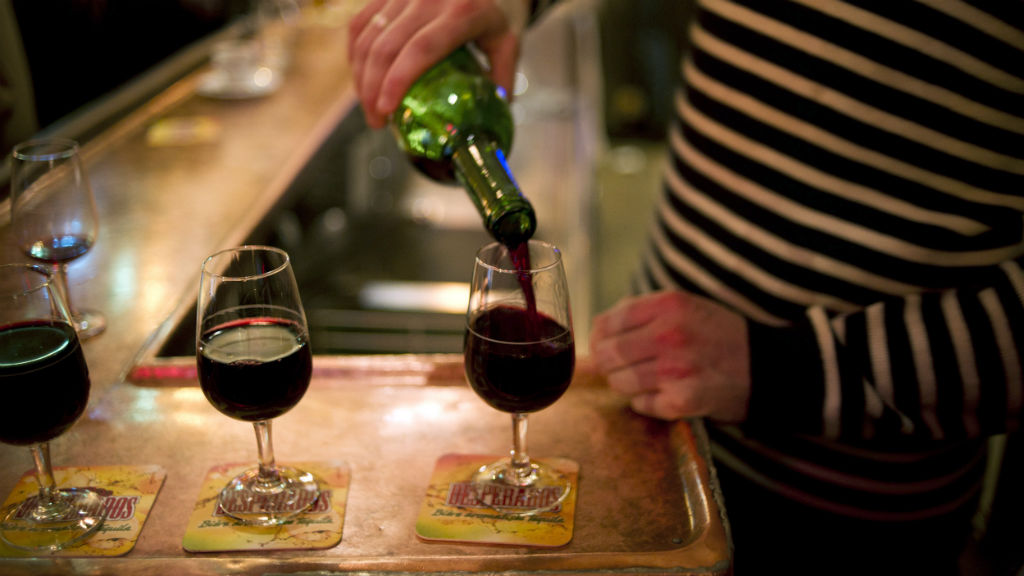Can red wine help stop bowel cancer?
The longevity of the French has long been attributed to their decadent diet. But now research suggests a glass of red wine could contain a tumour-fighting compound which helps prevent cancer.

Resveratrol is a chemical compound present in vegetables, olive oil, and the skin of red grapes, and is even more concentrated in red wine. Researchers at Leicester University gave a daily dosage of resveratrol (five milligrams, or the equivalent of two glass of red wine) to mice and found it halved the growth of bowel tumours.
Lead scientist Professor Karen Brown, a member of the university’s Cancer Biomarkers and Prevention Group said: “Having shown in our lab experiments that it can reduce tumour development we are now concentrating on identifying the mechanisms of how resveratrol works in human cells. We want to see how resveratrol might work to prevent cancer in humans.”
Although the potential health benefits of this chemical have been known for some time, the effects and amount to give to humans are still unknown.
We want to see how resveratrol might work to prevent cancer in humans. Professonr Karen Brown
John Mathers, Professor of Human Nutrition at Newcastle University, who was not part of the study, told Channel 4 News results involving animals do not always translate into drugs that work in humans.
He said: “There has been a lot of research carried out on resveratrol which has been tested using a variety of model organisms from yeast to mice. It has worked in some models but not in others. It is very difficult to translate model systems to humans which require a large amount of subjects to be convincing and it is very expensive.”
Past research has shown that a low-calorie diet given to animals appears to activate a class of proteins known as sirtuins that regulate metabolism and helps to extend lifespan in animals. Resveratrol also seems to mimic the effects of a severely restricted diet.
Professor Mathers added: “Resveratrol has a molecular and protective mechanism which helps cells to deal with damaged protein, such as ageing and cancer. It would be very nice to see this latest evidence, anything that can reduce cancer risk using a dietary molecule is potentially interesting.”
Disappointing trials
Professor Brown found the smaller the dosage used, the more potent the results compared to a much higher one of one gram when taken with a high fat diet.
She said: “We were absolutely surprised that this was the case. The next stage is to try to understand the mechanism behind this.”
So far, cancer trials involving resveratrol supplements have proved disappointing.
She added: “A lot of people take resveratrol as a supplement, but at the moment we don’t know how it works or on whom it can work until we have more information – we don’t even know the best dose you should take.
“It has been shown that high doses of resveratrol may potentially interfere with other medication and can cause side effects such as diarrhoea. But with all the exciting new studies that are being done – especially the clinical trials – I hope we’ll have a clearer picture in the next few years.”
The findings will be presented at Resveratrol 2012, a conference dedicated to resveratrol research starting at the university on 5 December.